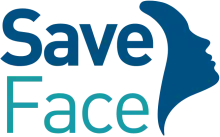After receiving a formal diagnosis of Attention Deficit Hyperactivity Disorder (ADHD) in November 2024, I experienced a transformative shift in understanding my lifelong challenges and strengths, which had previously been masked by structured environments. This diagnosis provided clarity and validation, enabling me to treat myself with greater compassion and kindness. As I navigated my business in the aesthetics field, I recognized the importance of creating an inclusive environment that accommodates neurodivergent individuals. This journey not only fuelled my passion for learning about neurodiversity but also inspired me to implement thoughtful adjustments in my clinic to support patients’ diverse needs, ultimately enhancing their experience and fostering a welcoming atmosphere.
Embracing Neurodiversity: Creating Inclusive Aesthetic Environments for Success
In today's world, understanding and accommodating neurodiversity is essential, especially in clinical settings. Many individuals are neurodivergent, encompassing conditions such as ADHD, autism, dyslexia, and more. These unique neurological frameworks can significantly influence how individuals interact with their environment and access services. Therefore, it’s crucial for clinics—especially in the aesthetics industry—to make thoughtful adaptations that foster inclusivity and support neurodivergent patients.
The Importance of Environment
Environment plays a pivotal role in the well-being of neurodivergent individuals. Many thrive best in spaces that minimize distractions and promote comfort. Clinics can implement several strategies to create a welcoming atmosphere:
1. Flexible Appointment Scheduling: By allowing for generous appointment slots, clinics can accommodate late arrivals due to anxiety or traffic issues. This flexibility reduces stress and allows patients to arrive in a calm state.
2. Clear Communication: Sending reminder emails a day prior to appointments can help clients manage their time and prepare mentally. Additionally, providing written information during consultations offers clarity for those who may struggle with processing verbal instructions.
3. Adjustable Environments: Clinics should consider adjustable lighting and temperature controls to cater to individual preferences. Some may find bright lights overwhelming, while others could benefit from a warmer, softer ambiance.
4. Minimized Distractions: Reducing environmental distractions—such as background noise and visual clutter—can create a more focused setting. This is particularly beneficial for those with ADHD or sensory processing sensitivities.
5. Physical Elements that Promote Movement: Strategically placing items within the clinic can encourage gentle movement during consultations. This can help neurodivergent clients feel more engaged and comfortable.
6. Supportive Resources: Providing resources like bottled water, coloured overlays for reading, and walk-throughs of procedures can enhance the overall patient experience. These small touches show a commitment to understanding and accommodating diverse needs.
The Value of Reasonable Adjustments
Implementing reasonable adjustments within clinical practices is not just a matter of compliance; it is an opportunity to enhance patient care. These adjustments can transform a standard appointment into a supportive experience tailored to the unique needs of neurodivergent individuals.
For example, incorporating a cooling-off period after consultations allows clients to process information at their own pace. This is particularly helpful for those who may feel overwhelmed by new information or decisions.
Fostering Inclusivity in Aesthetics
The aesthetics industry, known for its focus on appearance and trends, has the potential to lead the way in inclusivity. Clinics that recognize and embrace neurodiversity can carve out a distinctive niche that appeals to a broader range of clients.
Creating a welcoming space is essential—not just for neurodivergent individuals but for everyone. Clinics should consider becoming recognized safe spaces for LGBTQ+ individuals and other marginalized communities. This commitment to inclusivity can enhance the overall service experience and foster trust between clients and practitioners.
The Journey Forward
As more practitioners become aware of neurodivergence and its implications, there is a growing opportunity to reshape clinical environments. By adopting a holistic approach and implementing thoughtful adjustments, clinics can provide an experience that not only meets the needs of neurodivergent patients but also enriches the services offered to all clients.
In conclusion, the journey toward inclusivity is ongoing, and the aesthetics industry is well-positioned to lead by example. By embracing neurodiversity and making meaningful changes, clinics can create environments where everyone feels valued, understood, and empowered to succeed.


